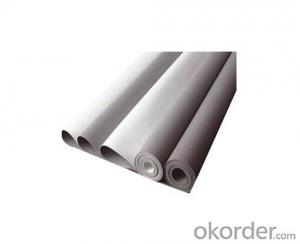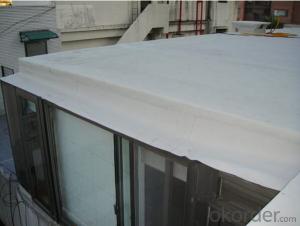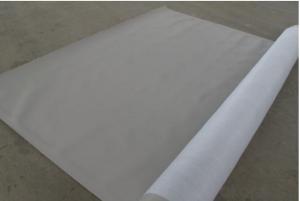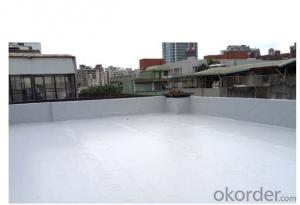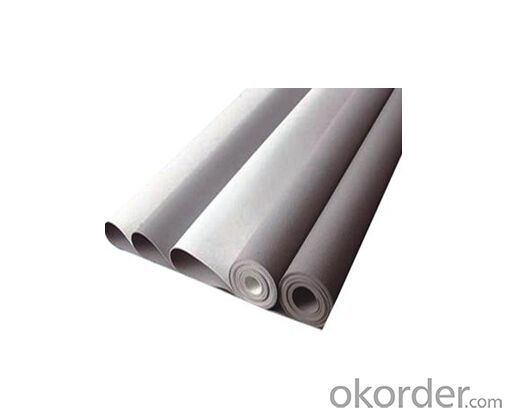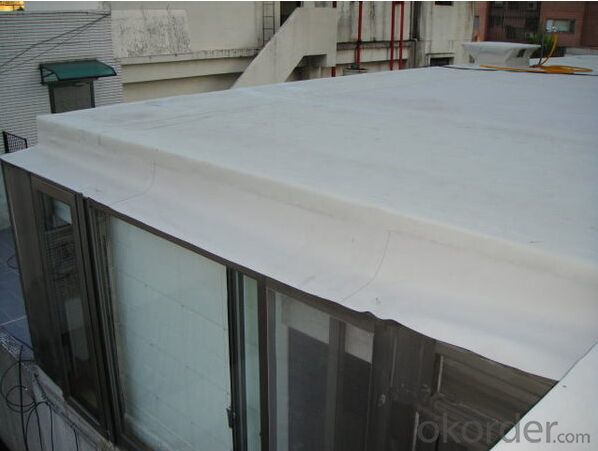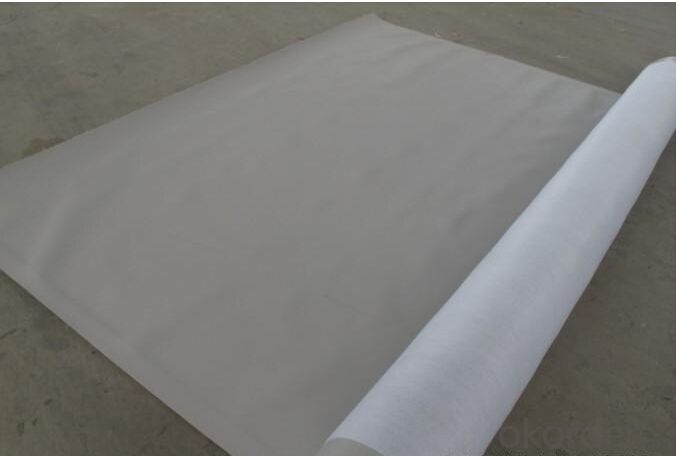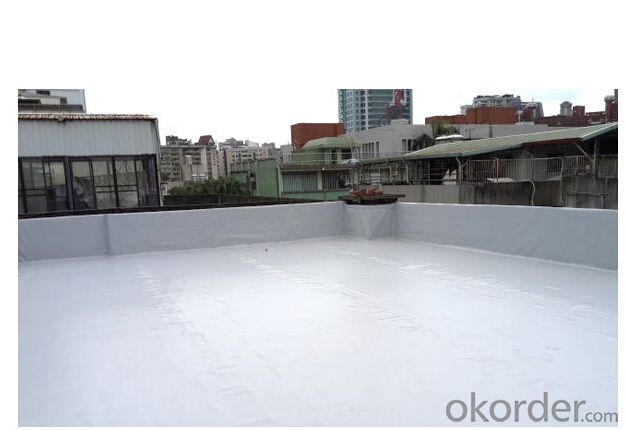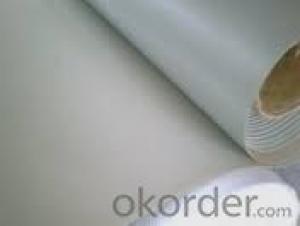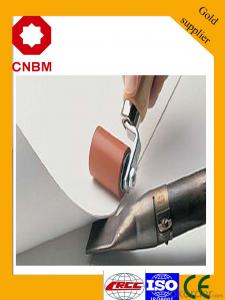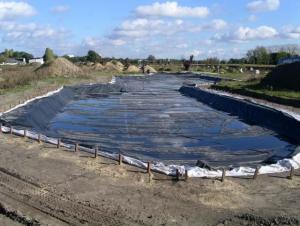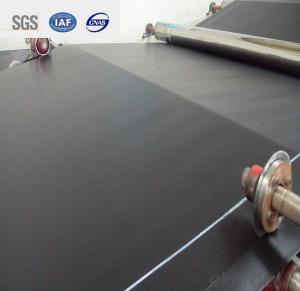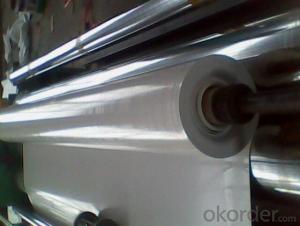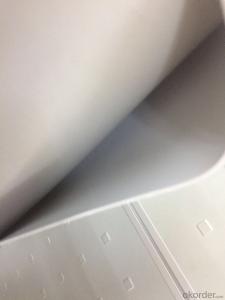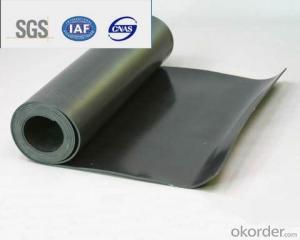PVC Roofing Waterproof Stretch Membrane with 1.2mm Width
- Loading Port:
- Qingdao
- Payment Terms:
- TT OR LC
- Min Order Qty:
- 2000 m²
- Supply Capability:
- 300000 m²/month
OKorder Service Pledge
OKorder Financial Service
You Might Also Like
Introduction of PVC Waterproof Membrane
Polyvinyl chloride the pvc waterproofing plastic membrane is a kind of excellent performance of polymer waterproof material,PVC resin as the main raw material,add all kinds of special additive and anti-aging composition,the use of advanced equipment and advanced technology extrusion rolling is made.The product has the tensile strength and elongation high shrinkage of small,low temperature soft good,long life and other advantages, the products wide 1.2m to 3.0m, the thickness of 0.8-2.0 mm(special specifications can be customized),stable performance,reliable quality,construction is convenient.
.
Features of PVC Waterproof Membrane
1)Excellent aging resistance. Service life of roofing material is over 20 years; service life of underground material is over 50 years.
2)Root resistant penetration, specially used on planting roofings.
3)Welding installation. Joints are solid and environment friendly, no pollution.
4)High tensile strength, good elongation and dimensional stability.
5)Good plasticity, easy and suitable for details installation.
6)Fireproof. Fire extinguished out of the ignition resource.
7)Surface is smooth, no fading and dirty resistant.
8)Width is over 2m. Construction wastage is small, more economical.
Classification and Specification of PVC Waterproof Membrane
N: Homogeneous PVC membrane
L: PVC membrane with fabric backing
W: Reinforced PVC membrane
Thickness: 1.2mm/1.5mm/2.0mm
Size: 2.05mx20m
Color: white/grey, or any other colors.
Advantage of PVC Waterproof Membrane
1.) Mixing automation. Apply automatic temperature control automatic time control and automatic feed control.
2.) Extrusion equipment uses twin screw coextrusion. Screw temperature uses computer automatic temperature control system.
3.) Handpiece uses large width didhead extrusion equipment.
4.) Sophisticated three-roller calender equipment. The space between equiment is controlled by automation system.
Application of PVC Waterproof Membrane
The products are widely used in all kinds of civil construction,subway,tunnel,water conservancy,landfill site,chemical industry,metallurgy and other areas of waterproof seepage control,corrosion engineering.
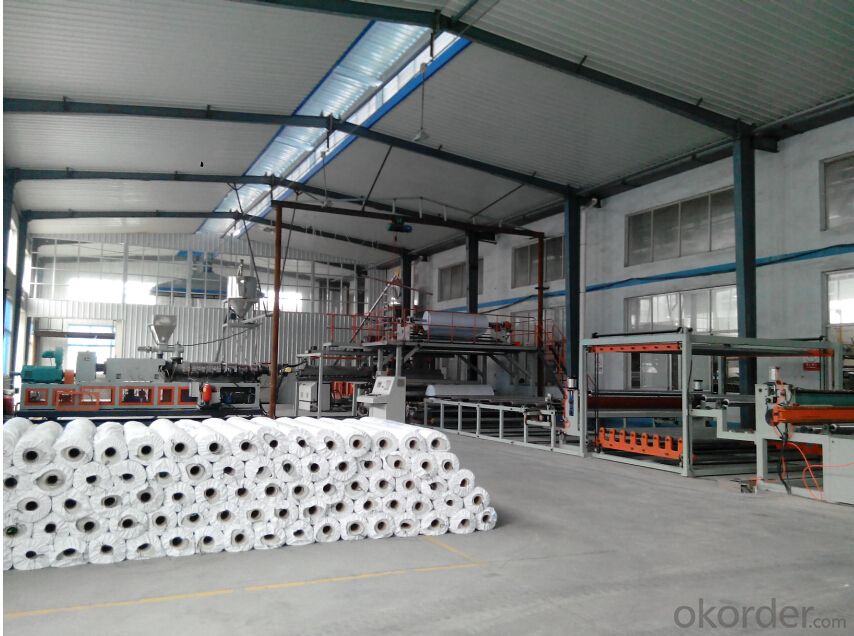
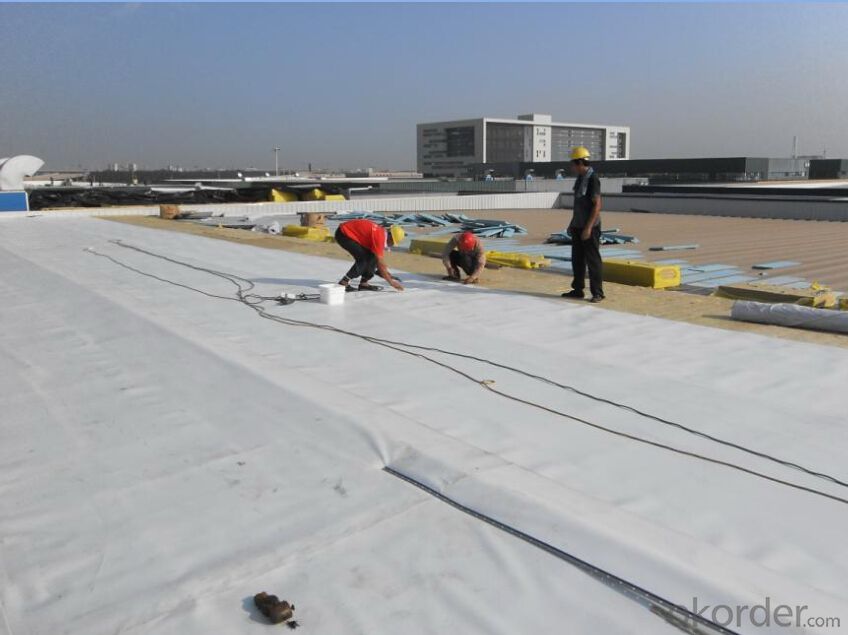
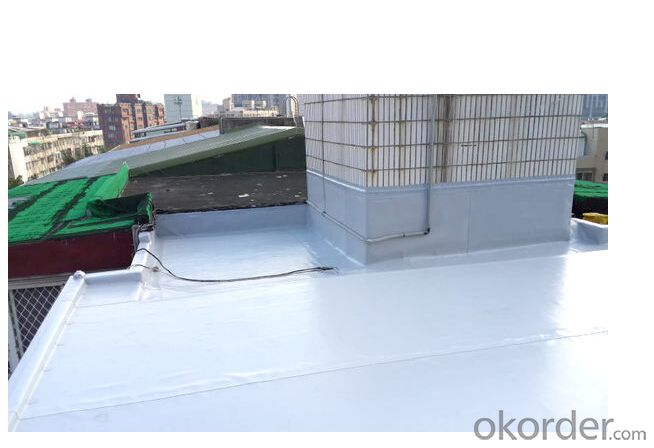
FAQ:
Can you produce 4m width?
Yes, no problem for us. We have four bases in China, largest one in this field.
How many quantity in one 20'' container for 1.2mm and 1.5mm?
480rolls, 11520m2 for 1.2mm and 400rolls, 9600m2 for 1.5mm
Can you provide free samples?
Yes, our samples are free, but express fees usually on buyer's account.
- Q: Can a waterproofing membrane be used in renovation projects?
- Indeed, renovation projects can greatly benefit from the utilization of a waterproofing membrane. The incorporation of this crucial component is vital in guaranteeing the durability and long-lasting nature of the structure being renovated. Its primary purpose is to establish a barrier that effectively prevents water infiltration, thereby shielding the building from any potential harm or leaks caused by water. Throughout the course of a renovation project, it is quite common to come across areas where water resistance is of utmost importance. These areas typically include basements, bathrooms, showers, balconies, and roofs. By applying a waterproofing membrane in these specific locations, one can effectively mitigate any moisture-related issues, inhibit the growth of mold, and prevent any structural damage that may arise as a result of water seepage. It is worth noting that waterproofing membranes can be utilized in a wide range of renovation projects, spanning across residential, commercial, and industrial settings. Regardless of whether it is a minor bathroom renovation or a larger-scale refurbishment of a commercial building, the incorporation of a waterproofing membrane will undoubtedly fortify the structure against any water-related complications. Additionally, it is important to mention that there are various options available when it comes to waterproofing membranes. These options encompass liquid-applied membranes, sheet membranes, and cementitious coatings. The availability of these choices ensures that one can select the most suitable membrane for a particular renovation project, taking into consideration factors such as budget, substrate, and the desired level of waterproofing. To summarize, the inclusion of a waterproofing membrane is an indispensable element in renovation projects, as it serves to safeguard against water damage and guarantees the longevity of the renovated structure. By opting for the utilization of a waterproofing membrane, property owners can experience a sense of tranquility, knowing that their renovated space is adequately protected against any potential water-related complications.
- Q: Can a waterproofing membrane be used for residential buildings or homes?
- Residential buildings or homes can indeed benefit from the use of a waterproofing membrane. Construction commonly relies on waterproofing membranes to safeguard against water infiltration, shielding both the structure and interior from moisture-induced harm. These versatile membranes find application in diverse areas like basements, roofs, foundations, and bathrooms, among others. By effectively blocking water, these membranes effectively thwart leaks, mold proliferation, and deterioration of building materials. Consequently, employing a waterproofing membrane proves highly efficacious in safeguarding the longevity and durability of residential buildings or homes.
- Q: Can a waterproofing membrane be used for underground fuel storage tanks?
- Yes, a waterproofing membrane can be used for underground fuel storage tanks. A waterproofing membrane acts as a barrier that prevents the penetration of water and moisture into the tank and protects the tank from corrosion and leaks. This is crucial for underground fuel storage tanks as they are vulnerable to moisture infiltration due to their location below the ground. By applying a waterproofing membrane to the tank, it helps to ensure the integrity and longevity of the tank by providing a durable and reliable waterproof seal. It is important to choose a waterproofing membrane that is specifically designed for fuel storage applications to ensure it can withstand the harsh conditions and chemicals associated with storing fuel underground.
- Q: Can a waterproofing membrane be used in planters or garden beds?
- Yes, a waterproofing membrane can be used in planters or garden beds. A waterproofing membrane is typically made of materials that are resistant to moisture and can effectively prevent water from seeping through the planter or garden bed. This can be particularly useful in situations where the planter or garden bed is made of materials that are not naturally waterproof, such as wood or concrete. By using a waterproofing membrane, you can protect the planter or garden bed from excessive water damage, which can lead to rotting, warping, or cracking. Additionally, a waterproofing membrane can also help to retain moisture within the planter or garden bed, creating a more favorable environment for plant growth. However, it is important to ensure that the waterproofing membrane used is safe for plants and does not release any harmful chemicals into the soil.
- Q: Can a waterproofing membrane be used in areas with high groundwater levels?
- Yes, a waterproofing membrane can be used in areas with high groundwater levels. In fact, it is highly recommended to use a waterproofing membrane in such areas to protect the structure from water infiltration. A waterproofing membrane is specifically designed to create a barrier against water, preventing it from seeping into the building or structure. This can be particularly important in areas with high groundwater levels, as the pressure from the water can be significant and increase the risk of water damage or flooding. By installing a waterproofing membrane, you can effectively mitigate the risk of water infiltration and ensure the longevity and durability of the structure.
- Q: Can a waterproofing membrane be used on both interior and exterior surfaces?
- Both interior and exterior surfaces can benefit from the use of a waterproofing membrane. These membranes are created with the purpose of safeguarding surfaces against water infiltration and harm. Rubber, asphalt, or thermoplastic materials are commonly utilized to construct these membranes, which form a barrier to prevent moisture from penetrating. Whether applied to interior walls, floors, or exterior foundations, roofs, or balconies, a waterproofing membrane is highly effective in averting issues such as leaks, mold, or structural damage caused by water seepage. It is crucial to carefully consider the unique requirements of each surface and select an appropriate waterproofing membrane for the intended use.
- Q: Is a waterproofing membrane resistant to saltwater or other corrosive substances?
- Waterproofing membranes, in general, have the ability to resist saltwater and other substances that cause corrosion. These membranes are created to act as a barrier against moisture and water intrusion, offering protection against corrosive agents. The materials commonly used to manufacture these membranes, such as modified bitumen, PVC, EPDM, or TPO, naturally possess resistance to saltwater and other corrosive elements. Some manufacturers may even add extra layers or coatings to further enhance the membrane's ability to resist corrosive substances. Nevertheless, it is important to consider that the degree of resistance can vary depending on the specific type and quality of the waterproofing membrane employed. Therefore, it is crucial to select a high-quality membrane that is specifically designed for the intended application, whether it be in saltwater environments or areas exposed to other corrosive substances.
- Q: Can a waterproofing membrane be used in areas with chemical exposure?
- Yes, a waterproofing membrane can be used in areas with chemical exposure. However, it is essential to choose a membrane specifically designed to withstand the chemicals present in the environment. The membrane should have chemical resistance properties and be compatible with the specific chemicals it will be exposed to in order to provide effective protection against water damage and chemical degradation.
- Q: Can a waterproofing membrane be used in agricultural structures?
- In agricultural structures, like barns, greenhouses, and storage facilities, it is possible to utilize a waterproofing membrane. These structures often necessitate protection against moisture and water harm. A waterproofing membrane is a robust and flexible substance that can be applied to diverse surfaces such as roofs, walls, and floors to obstruct water infiltration. It functions as a barrier, stopping water from penetrating the structure and causing destruction to the building materials, equipment, and stored crops. Moreover, a waterproofing membrane can also assist in regulating the temperature and humidity levels within the agricultural structure, generating a more controlled and ideal environment for crops, livestock, and equipment. In summary, the utilization of a waterproofing membrane in agricultural structures can guarantee the durability and functionality of the building while safeguarding the valuable assets inside.
- Q: Does a waterproofing membrane provide any soundproofing benefits?
- A waterproofing membrane, unfortunately, does not offer any advantages in terms of soundproofing. Its sole purpose is to safeguard surfaces against water infiltration, such as roofs, walls, or foundations. It is typically composed of materials like asphalt, rubber, or polyethylene, which are not effective in obstructing or absorbing sound waves. On the other hand, soundproofing entails the utilization of distinctive materials and techniques that can diminish or eradicate the transmission of sound from one area to another. This may involve insulation, acoustic panels, or soundproof barriers. Consequently, if soundproofing is a concern, it is essential to contemplate separate soundproofing measures in conjunction with a waterproofing membrane.
Send your message to us
PVC Roofing Waterproof Stretch Membrane with 1.2mm Width
- Loading Port:
- Qingdao
- Payment Terms:
- TT OR LC
- Min Order Qty:
- 2000 m²
- Supply Capability:
- 300000 m²/month
OKorder Service Pledge
OKorder Financial Service
Similar products
Hot products
Hot Searches
Related keywords
